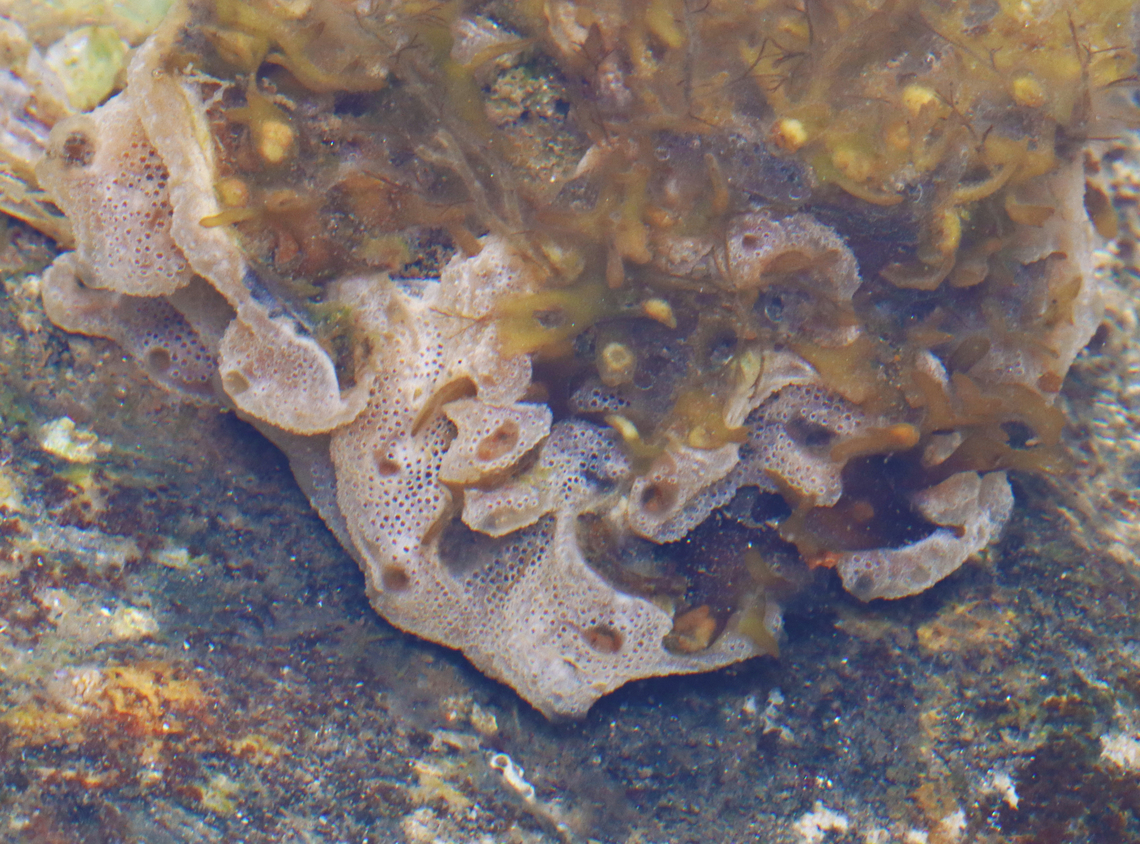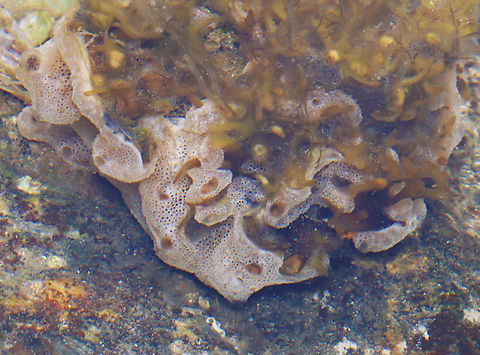 Species introCountry intro
Species introCountry intro
Sea Vomit - Didemnum vexillum
This tunicate is a problematic, invasive species in Europe and the US. It can grow on nearly anything, including other organisms, which it smothers. It can easily have a devastating effect on the ecology and balance of seafloor communities as it decreases the diversity and abundance of other organisms. It even releases a toxin to discourage predation and to prevent other organisms from settling in the area. Due to all these factors, it has earned the nickname 'D. vex' because it is so vexing.
Habitat: All over the place in tide pools

"Didemnum vexillum" is a species of colonial tunicate in the family Didemnidae. It is commonly called sea vomit, marine vomit, pancake batter tunicate, or carpet sea squirt. It is thought to be native to Japan, but it has been reported as an invasive species in a number of places in Europe, North America and New Zealand.

comments (2)